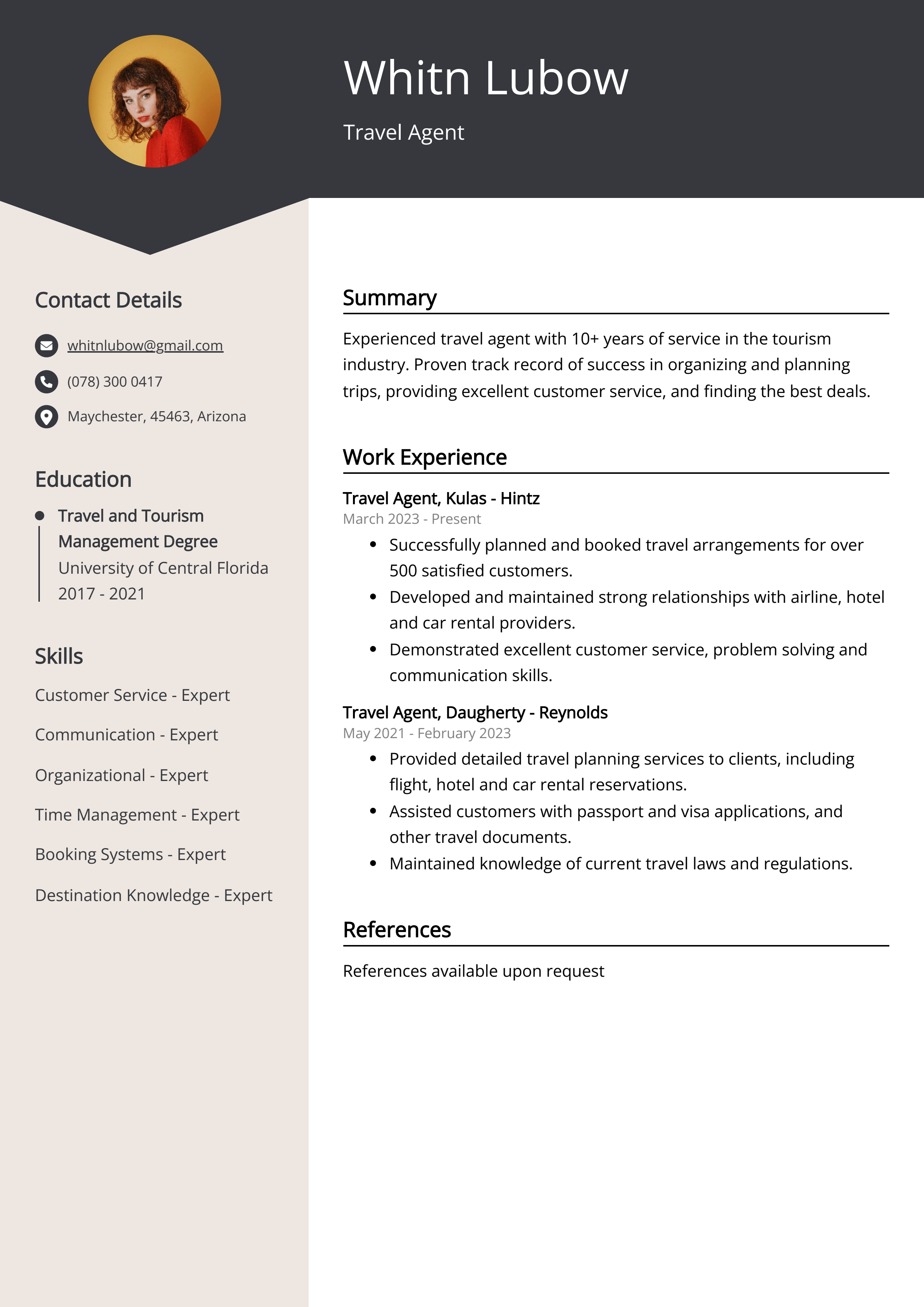Creating a resume that stands out can be challenging, especially when you have a passion for travel. In today’s competitive job market, it’s crucial to showcase your unique experiences and skills gained from your adventures around the globe. This article will guide you on how to effectively incorporate travel into your resume, explore the benefits of doing so, and provide you with tips and tricks along the way.
Understanding the Importance of a Travel-Inclusive Resume
Including travel experiences in your resume can set you apart from other candidates. Here’s why:
- Diverse Skill Set: Travel often helps you cultivate skills like adaptability, problem-solving, and cultural awareness, which are highly attractive to employers.
- Personal Growth: Your travels contribute to your personal growth, making you a well-rounded candidate.
- Unique Perspective: Experiences abroad can offer insights and ideas that can drive innovation in the workplace.
Key Elements of a Travel-Focused Resume

1. Choose the Right Format
When incorporating travel experiences, consider the type of resume format that best highlights those experiences:
- Chronological Format: Best for those with a straightforward work history.
- Functional Format: Ideal for highlighting skills gained through travel.
- Combination Format: Merges both chronological and functional elements, suitable for showcasing diverse experiences.

2. Crafting an Eye-Catching Summary
Your summary statement should encapsulate your travel experiences succinctly. For example:
“Dynamic marketing professional with extensive international experience across five continents. Proven ability to leverage cross-cultural communication and adaptability to drive results in diverse environments.”

3. Highlighting Travel Experiences
When detailing your travel experiences, it’s essential to focus on the skills you gained and how they relate to the job you are applying for.
Experience Section
Instead of listing trips, focus on specific projects or experiences. For instance:

- Volunteer Work in India: Coordinated community development projects that improved local educational standards.
- Business Trip to Japan: Engaged with key stakeholders to negotiate partnerships, enhancing cultural sensitivity and communication skills.
Skills Section
Include skills acquired through travel, such as:
- Cultural Awareness
- Language Proficiency
- Project Management

Pros and Cons of Including Travel in Your Resume
| Pros | Cons |
|---|---|
| Showcases adaptability and cultural awareness | May not be relevant for all job applications |
| Can illustrate soft skills effectively | Risk of appearing unfocused if not well articulated |
| Differentiates you from other candidates | Potential employers may undervalue travel experience |
Travel Tips to Enrich Your Resume
1. Keep a Travel Journal
Document your travels and reflect on the skills you’ve acquired. This can provide you with concrete examples to use in your resume.
2. Network While Traveling
Connect with professionals in your field while traveling. This can lead to potential job opportunities and enhance your resume.
3. Volunteer or Intern Abroad
Consider internships or volunteer opportunities that align with your career goals. These experiences can add significant value to your resume.
Destination Highlights for Resume-building Experiences
Some destinations stand out for their unique opportunities for personal and professional growth:
1. India for Cultural Immersion
- Opportunities: Engage in community service, improve language skills, and experience diverse cultures.
- Personal Experience: Volunteered in rural schools, learned basic Hindi, and gained insights into local practices.
2. Japan for Professional Networking
- Opportunities: Business internships, participate in international conferences, and improve communication skills.
- Personal Experience: Attended a tech conference that expanded my professional network significantly.
3. Spain for Language Acquisition
- Opportunities: Language classes, cultural exchange programs, and networking with local businesses.
- Personal Experience: Lived with a host family while studying Spanish, leading to fluency and deeper cultural understanding.
SEO Tips for Your Resume
To enhance the visibility of your resume in applicant tracking systems, consider the following:
1. Use Relevant Keywords
Research and include industry-specific keywords related to your travel experiences.
2. Customize for Each Application
Tailor your resume to highlight the travel experiences most relevant to the job you are applying for.
3. Keep it Professional
Avoid overly casual language and ensure your travel experiences are framed in a professional context.
FAQs about Writing a Resume with Travel Experiences
What should I include about my travel experience in my resume?
Focus on the skills gained, relevant projects, and how these experiences relate to the job you’re applying for.
How do I frame travel experiences as professional skills?
Highlight adaptability, problem-solving, and cross-cultural communication in your experiences.
Can too much travel experience hurt my resume?
It can if it seems unfocused or irrelevant. Ensure to align your travel experiences with the job requirements.
Conclusion: Turn Your Travels into Career Assets
Travel experiences can provide you with unique skills and perspectives that are valuable in today’s job market. By effectively incorporating these experiences into your resume, you stand a better chance of capturing the attention of hiring managers. Remember to tailor your resume for each application, focus on relevant experiences, and present your travel stories in a professional light. Your adventures can be your greatest asset!